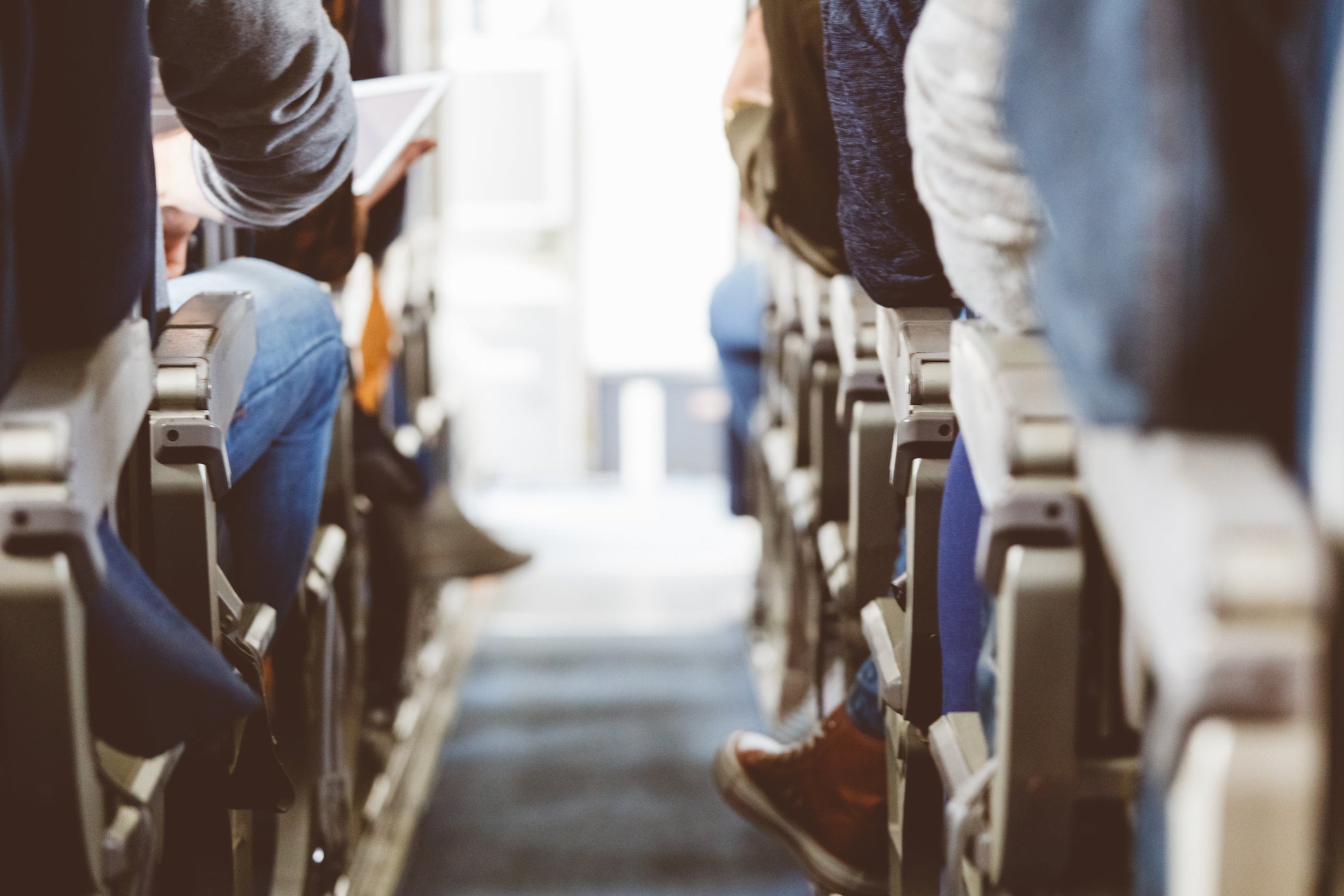Sick plane passengers most likely to infect people in next row, study finds
Report reveals influenza and SARS may not be transmitted as previously thought

Your support helps us to tell the story
From reproductive rights to climate change to Big Tech, The Independent is on the ground when the story is developing. Whether it's investigating the financials of Elon Musk's pro-Trump PAC or producing our latest documentary, 'The A Word', which shines a light on the American women fighting for reproductive rights, we know how important it is to parse out the facts from the messaging.
At such a critical moment in US history, we need reporters on the ground. Your donation allows us to keep sending journalists to speak to both sides of the story.
The Independent is trusted by Americans across the entire political spectrum. And unlike many other quality news outlets, we choose not to lock Americans out of our reporting and analysis with paywalls. We believe quality journalism should be available to everyone, paid for by those who can afford it.
Your support makes all the difference.A new academic report has found that sick air travellers are most likely to infect passengers in the next rows, rather than the entire plane, as previously thought.
The report was published in Proceedings of the National Academy of Sciences by the FlyHealthy Research Team at Emory University in Georgia, USA.
The team stated that despite often sensational media stories, the risks of infecting other passengers with respiratory viruses remained “unknown”. It documented 10 transcontinental US flights, monitoring the behaviour of crew and passengers in the economy cabin on single-aisle journeys.
The team of researchers concluded that there is a “low probability of direct transmission to passengers not seated in close proximity to an infectious passenger” and that infection is likely to be limited to one row in front of or behind a sick passenger.
Flights observed in the study took off in the morning or afternoon, with the FlyHealthy Research Team reporting that only one passenger on one flight was observed coughing moderately, while no crew members were observed coughing.
They found that an infectious crew member will infect 4.6 passengers, concluding that it is “imperative” that crew members not fly when they are ill.
The researchers also noted that some transmissions ‘”may have occurred while waiting in the airport, while boarding, or while deplaning” rather than during transit and the researchers recommended people best protect themselves by “exercising careful hand hygiene.”

Tray tables and seatbelts were swabbed for signs of viruses, with none found, which suggests that most illnesses are spread through sneezing and coughing rather than droplets falling on surfaces or to the ground.
The team’s findings also suggest the belief that droplets are the main route for influenza and SARS (based on public health agency guidance) may not be true, with transmissions also possible via “smaller virus-laden particles”.
The Emory researchers added that there may be a difference between short and long-haul flights, with greater passenger movement around the cabin in the latter.
In 2014, airlines became concerned when it emerged a nurse who contracted the Ebola virus after treating a patient in the USA had travelled on a flight between Cleveland and Dallas. The PNAS report concluded that although there had been much media reporting (and speculation) on the matter at the time, the risks of transmission are “unknown”. It was later revealed that she had not infected any other passengers.
Join our commenting forum
Join thought-provoking conversations, follow other Independent readers and see their replies
Comments